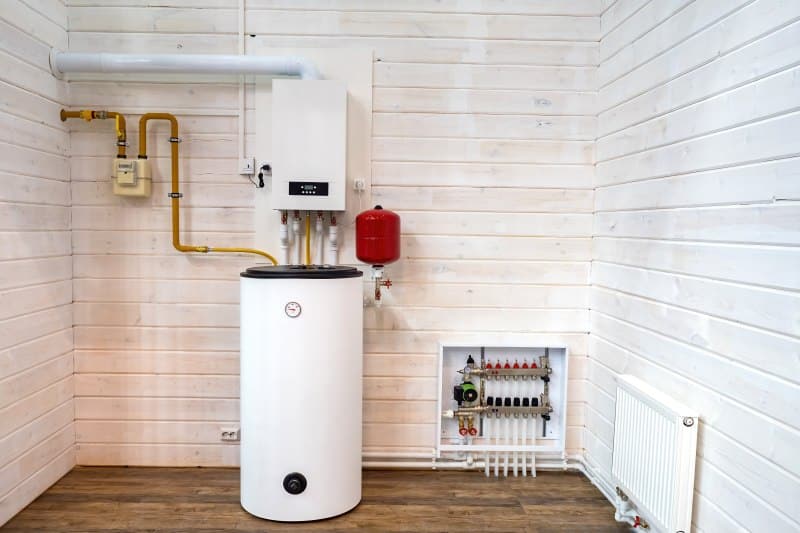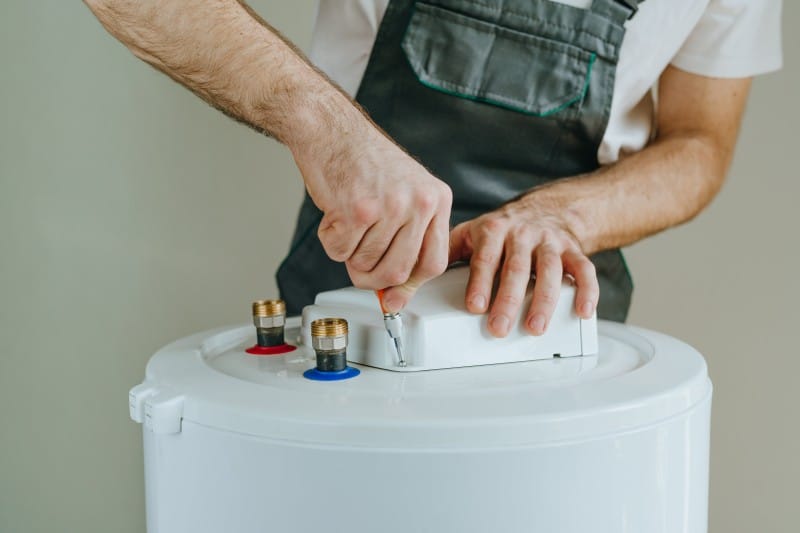Hot water systems are a big part of everyday life. They make showers comfortable and keep dishes and laundry clean. But they can also use a lot of energy and raise your bills. The good news is that you can make smart choices from the moment you buy a unit to the way you use it every day. This guide shows you how to cut costs at every stage.
Choosing the Right Hot Water System
Your choice of system will have a big impact on what you pay now and later. The right match for your home can help you save money from day one.
Compare Different Types of Water Heaters
Each type of heater works differently.
- Storage tank water heaters are affordable to buy. However, they keep heating water even when you’re not using it, which can increase energy use.
- Tankless water heaters heat water only when needed. This can cut standby energy use, but they often cost more upfront.
- Heat pump water heaters move heat instead of creating it. This makes them more efficient than standard electric water heaters.
- Solar water heaters can bring large savings if you have enough sun exposure. The initial cost is higher, but they can pay off over time.
Choose based on your climate, family size, and how much you want to invest in long-term savings.
Check Energy Efficiency Ratings
Look for models with the Energy Star label. This means they meet standards from the Department of Energy. These models use less power, which can lower your utility bill every month.
Factor in Size and Demand
Buying a unit that is too large wastes energy. A unit that is too small will run out of hot water quickly. Match the size to your household’s water use to get the best balance of comfort and efficiency.
Reducing Costs During Purchase
Once you know the type of heater you want, focus on getting the best deal without losing quality.
Shop Smart
Many households spend more than they need to because they buy the first unit they find or choose based on looks alone. Price differences between suppliers can be significant, especially when factoring in delivery and installation. One easy way to compare models and prices is to buy hot water system online, where you can quickly see different brands, capacities, and energy ratings in one place. This can help you find a model that fits your budget without sacrificing performance.
Avoid Unnecessary Features
Skip features you’ll not use. Extra controls or luxury finishes may look nice but rarely improve energy efficiency or reduce your energy bill.
Lowering Installation Expenses
The way you install your system can be just as important as the system you choose. Careful planning here can save you a lot.
Get Multiple Quotes from Installers
Installation costs can vary a lot. Get at least three quotes. This helps you find a fair price while still getting quality work.
Timing the Installation
If possible, install during the slow season for contractors. Some offer discounts when business is slower.
Placement for Efficiency
Place the unit close to the rooms that use the most hot water. Shorter pipe runs mean less heat loss. This can improve energy savings over time.
Setting Up for Long-Term Energy Savings
Once your system is installed, small changes can keep your bills low for years.
Optimize Water Temp
Set the thermostat to about 120°F. This is hot enough for most needs but reduces energy use and lowers the risk of burns.
Improve Insulation
One small step you can take is adding insulation to older tank heaters and wrapping exposed pipes. This keeps water hotter longer and cuts down how often the heater needs to run, which is similar to how winter home maintenance tips often recommend sealing drafts and insulating pipes to improve overall energy efficiency.
Install Water-Saving Fixtures
Use low-flow shower heads and faucet aerators. They reduce the amount of hot water used without lowering comfort. This also lightens the load on your heating system.
Energy-Saving Habits and Maintenance
Your daily habits affect how much energy your hot water system uses. Regular maintenance helps keep it running efficiently.
Routine Maintenance
Flush the tank once or twice a year to remove sediment. This makes heating more efficient. Check for leaks or rust so you can fix problems before they become expensive.
Smart Usage Habits
Wash clothes in cold water when you can. Run the dishwasher only when it’s full. These small choices add up to noticeable energy savings and a lower utility bill.
When to Upgrade Your System
Even with good care, a hot water heater won’t last forever. Knowing when to replace it can save you money in the long run.
Signs Your Current Heater Is Costing Too Much
Watch for rising energy bills or frequent repairs. These can be signs that your unit is no longer efficient.
Choosing an Energy-Efficient Replacement
If you need a new system, consider a tankless water heater, heat pump, or solar water heater. These can greatly reduce energy costs over time, especially when combined with good water-use habits.
The Bottomline
Lowering hot water system costs starts with choosing the right unit. It continues with smart shopping, careful installation, and everyday habits that reduce waste. With the right steps, your water heating system can be reliable, efficient, and affordable for many years.


